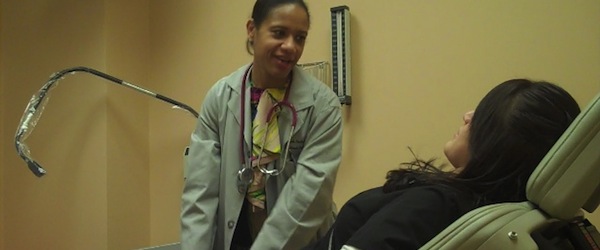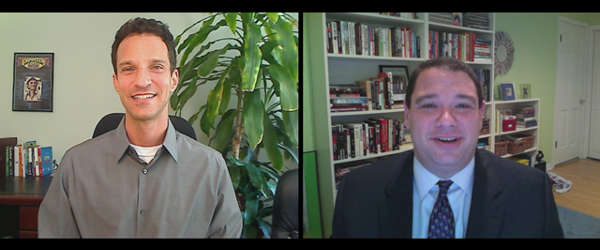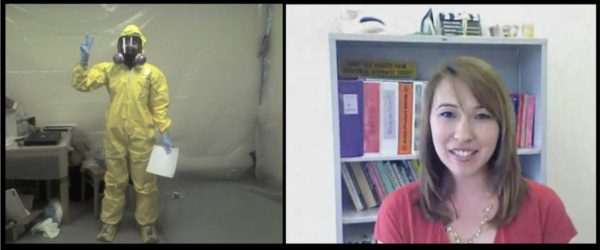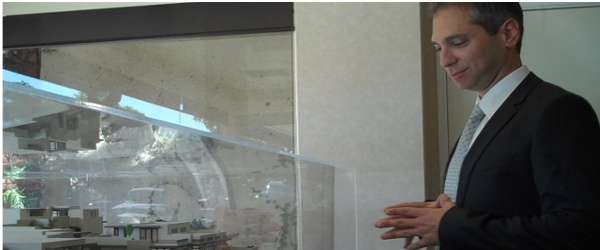Retail Buying Careers
Want to be the person who gets to select what merchandise a company should sell? Retail buyers get to do that! Retail buyers analyze data and make decisions on what merchandise to sell as well as what quantities to order and re-order. Merchandise buying requires a well-rounded person who can be creative in looking at fashion, designs and product lines in addition to analyzing numbers and forecasting the right amount of inventory that will make the most money for their company.
SNEAK PEEK (Full Episode + Transcript below)
|
Today's Guest

Retail Buyer/ VP of Retail at House of Blues Allison Meyerson
College Major: Art History
College: Boston College in Chestnut Hills, MA
High School: Isidore Newman School in New Orleans, LA
First Job Ever: Bussing in a restaurant
Worst Job Ever: Running a phone switchboard at an internship
How To Become A Buyer
Allison shares great career advice on how to become a retail buyer in the full episode. For starters, she says you'll need to be a flexible person. Your typical day won't have a lot of stability because you'll regularly be changing gears to solve problems like "we're almost out of stock on our most popular item and we haven't received our re-order yet". You'll also need to be good with numbers since you'll be analyzing them all the time.
Employers for retail buying careers will prefer that you have a college degree. Allison suggests pursuing a well-rounded education due to the many skills that buying careers require. Any experience working in retail should give you an overall sense of retail and help to get your retail career started. Allison says if you can, try to get a job at the corporate headquarters for whatever retail company interests you. If you can't get a corporate job, then get a store-level retail job in a retail environment that excites you and work hard to move up from there.
FULL EPISODE #32
For our Audio Podcast: Careers Out There on iTunes
TRANSCRIPT OF TODAY'S INTERVIEW
Good Skill Sets For Retail Buying Careers 9:37-10:58
Importance of Math Skills for Retail Buying Careers 10:58-12:40
Education for Retail Buyers 12:40-13:58
Breaking In to Retail Buying Careers 13:58-17:57
Most Rewarding Part of Retail Buying Careers 17:57-19:47
Most Challenging Aspect of Retail Buying Careers 19:47-23:14
Personality Types that Fit Well for Retail Buying Careers 23:14-24:04
Keys to Success for Retail Buying Careers 24:04
Careers Out There Host Marc Luber: Hey everyone – welcome to Careers Out There. I’m your host Marc Luber and we’re helping you find a career that fits you. In each episode of Careers Out There we explore a career path by talking to a real professional who does that kind of work. They share all kinds of advice with us to help you decide if it’s the kind of path you want to explore further. In today’s episode, we’re looking at the career path of being a retail buyer. We’re talking to Allison Meyerson – she’s the Vice President of Retail at House of Blues Entertainment where she’s worked for the past 17 years! It’s gonna be a great episode – so stick around. [theme song] OK, we’re back! Allison, welcome to Careers Out There.
Vice President of Retail Allison Meyerson: Thanks. Thanks for having me.
Host Marc Luber: Absolutely. You guys should know that Allison is not here to represent House of Blues or their parent company. She’s just here to represent herself and the career path of being a retail buyer. Allison lives here in LA just like me, but she’s actually from New Orleans. And we’ve been friends for a really long time. I actually go way back with her husband – we worked together at my first job out of school. It was in the music industry, and I was up in San Francisco. We were working at the legendary Bill Graham Presents, and that is Bill right there over my shoulder on that poster! That’s who that guy is! That’s Bill Graham looking at us. So Allison – we’re being watched by Bill, he’s sending us some good vibes for our interview here!
Retail Buyer Allison Meyerson: Fantastic.
WHAT DOES A RETAIL BUYER DO [starts at 1:27]
Luber: So tell us this – what does a retail buyer do?
Allison Meyerson: A retail buyer – because I’ve been one for years – although now I oversee buyers as part of my role, but a buyer is gonna be primarily responsible for product replenishment in stores as well as new product introductions and order quantities for new products.
Luber: Can you walk us through some real life examples so we can see some scenarios that play out on each of those things you said?
Allison Meyerson: Yeah. So weekly or even daily retail buyers are gonna be looking at reports from the stores with sales information and then they’re gonna be analyzing that information to judge what needs to be re-ordered and when it needs to be re-ordered, what’s the lead time that we have with different vendors and different product categories, if items are being produced frequently, if they’re being produced domestically they’re gonna have a shorter time frame, if they’re being produced offshore, they’re gonna have a longer time frame for production…So all of these things weigh in to the analysis and the decisions that the buyers are making, as well as of course how well the product is selling. And then if it’s not selling as well, then there’s another set of decisions to make in terms of does this need to be marked down, or is it selling better in one location and not another? Do we need to transfer it somewhere? Anything that’s going to give your stores their maximum revenue potential.
Luber: And that’s because let’s say a certain hat might be really hot in Boston but in Chicago nobody likes it? Does that kind of thing happen?
Allison Meyerson: That does happen! Absolutely. I would tell you that in my experience, most best selling products are best selling products everywhere. But there are certain anomalies here and there that for some reason gangbusters in Las Vegas or somewhere else and don’t sell as well in other places. So yeah. And those are some of the things that if they’ve been around a little while you know that and you have some of that history – but when they’re new products, that’s always something that you’re kind of looking to fine-tune and tweak.
Luber: OK. And tell us again the difference – your path is more focused on souvenirs and tourists and entertainment-based, but then there’s other buyers at other types of companies or other types of retail buying that are dealing with shopping malls and shopping center types of stores? Is that accurate?
Allison Meyerson: Yeah. Absolutely. Our product line is a little different in that respect. That is who we’re catering to. It depends on the audience, actually on any given night and depending on what the music genre is as well as the tourism and the different things affecting tourism, be it vacation travel or business travel and things like that. So it’s a little bit different than traditional retail, mall retail as you referred to it. But buyers are gonna be doing the same types of analysis for either version.
Luber: And you’re analyzing: it’s selling well, it’s not selling well, we need more, we need less. What about for new products? What happens there? There’s always new stuff coming in – there’s new stuff in stores all the time. Are you the one selecting the products?
Allison Meyerson: Yes. We’re constantly putting in new products all the time and we’re the ones deciding what products those are. Some of which we are getting graphic, we’re directing some of our graphic designers, but a lot of times they’re the ones giving us all kinds of different choices and then we’re funneling down from there and we’re saying “ok, here are 20 designs but we’re only gonna pick these 4 and focus on those and figure out when our introductions are gonna be.” And that is different in different types of retail. There are some retailers, of course and a lot of larger retailers that work a lot farther out than we do sometimes. We usually work a couple of seasons out but there are other retailers that work a year out or more.
Luber: Wow.
Allison Meyerson: So that can differ a little bit but then, to be honest, making those decisions with new product is all about looking at your open-to-buy, which is based on how much money you have available to spend calculated from the amount of revenue that you have forecasted in your sales. So you know that you need X amount of dollars of product if you’re gonna get X amount of sales. You also have to take a calculated risk on how much you’re gonna have to mark down because as much as we don’t like it, no one makes perfect decisions every single time. So we might order a little too much of something and a little too little of something else but we know how the sales are gonna go. So again, all part of the calculations and the risks that you take when you’re doing or deciding new product quantities. But a lot of those decisions come from experience and being able to – you’ve just done it over and over and over again. So then it’s easier to do.
Luber: Because you know the flow. You know how things are going to flow.
Allison Meyerson: Yes. You have a general sense. You know that generally what this store is gonna sell half of what this other store does and so you’re not gonna make a decision where you order them the same amount of product.
Luber: Now the cool thing about this job from what I’m hearing is that you’re part of the process – part of the decision-making process in selecting new stuff, which has to be pretty creative because you have to be thinking creatively both as far as what’s gonna sell and what’s cool, what’s gonna be the next cool, good, great thing that everybody’s gonna love. But also you have to be thinking analytically and analyzing all the time. Is that right? You’re doing both of those kinds of things?
Allison Meyerson: Oh yeah. We absolutely are. It’s always very creative – even when there are designs that are submitted and considered, there are always things that you’re considering and tweaking a bit because you know what blanks are available or what your dye lot is gonna be, and so then maybe you have to change the color a little bit on that one and if you change the color you might have to change the embroidery thread and things like that. So you’re always going to be a part of that process.
Luber: And so then are you collaborating with artists? Because you’re not the actual artists, so are you collaborating with them on this? With an art department? Is that how that works?
Allison Meyerson: Yes, absolutely. We’re always working with the art department.
Luber: Yeah, and then you’d also be working with the finance people who do the other stuff, right? So you’re working with all kinds of people within your role as a retail buyer, right?
Allison Meyerson: We do. There’s the finance and accounting division, there’s the legal division, you have to work on that stuff – we do often – like trademark issues and plenty of other things, but certainly that’s an ongoing – intellectual property is important in our business. And then there’s the graphic design department, there’s the marketing department, there’s the talent department – and we only work with them not as much as some of the other departments. But we do actually collaborate a bit with talent as it relates to band merchandise, because although that’s not something that we control or have any input in, it is something that we help manage.
GOOD SKILL SETS FOR RETAIL BUYING CAREERS [starts at 9:37]
Luber: OK, so what’s really unique then about this job also, it sounds like, is you’re dealing with so many kinds of people and wearing so many different kinds of hats. So it takes a unique kind of person to have a job like a retail buyer, whether you’re in the more tourism-side of things or the more shopping center side of things. Let’s get in to the skills then that you’d say are really needed. Obviously you have to be able to be a creative person, you have to be able to think analytically. What else would you say?
Allison Meyerson: I would say that you have to be able to problem-solve because there are always things and situations that come up that aren’t, that crop up that weren’t expected.
Luber: Like?
Allison Meyerson: Products that get delayed, shipments that get delayed in customs…there may be a special event that needs a certain product in 3 days so all of a sudden you can be turned in another direction because you’ve gotta maybe put out some fires. But as with anything collaborating with other groups, it’s always gonna require some amount of flexibility on your part and working with different types of personalities and different types of people. And I think that there’s flexibility that’s also required as it relates to dealing with these little problems that come up all the time and trying to – just little challenges – trying to figure out how to best navigate through them.
IMPORTANCE OF MATH SKILLS FOR RETAIL BUYING CAREERS [starts at 10:58]
Luber: Yup. Talk to us about math skills because it sounds like math skills have to play a role in this.
Allison Meyerson: Yeah. Math skills certainly do play a role in this. We of course generate a lot of different reports from the systems that we have so we can push buttons and they do that for us a little bit but you do have to understand where the calculations are coming from, how the formulas are written and what they’re based on so that you can then take that information and analyze it appropriately to make your decisions as it relates to creating new orders, putting new products in the stores, looking at the sell-through history as well as the lead times that you understand. The other thing that you have to consider a lot of the times are vendor minimums. Whereas you might know that you need to order a minimum of 1,000 to get price that you were at before. So you’re always having to weigh those things too because then you do frequently want to meet whatever minimums you need to meet, be at the price point that guarantees you the margin that you want to be. So then that does mean that you’re gonna be looking at multiple unit purchases for different stores at the same time, kind of maximizing your profitability based on meeting those minimums.
Luber: And would you say that kind of analysis, that kind of math, is stuff you can learn once you’re on the job once you’re out there on the career path or do you have to be a math star at school to be destined for this path?
Allison Meyerson: No. I don’t think you have to be a math star at school. I think that everything that school teaches you is a good foundation to have in terms of math preparedness. But I think there are a lot of calculations that are specific to our business that you would really only learn on the job and then part of that learning is just allowing yourself the time to have the experience with the different types of reports and calculations.
EDUCATION FOR RETAIL BUYERS [starts at 12:40]
Luber: And since we’re on the school topic, I want to stick with that. Would you say that there’s any specific educational path that someone should pursue if they want to be a retail buyer?
Allison Meyerson: Well because I think that there’s so many different things that you have to do, there’s problem-solving and there’s math and analytical skills, there’s also creativity, there’s also collaborating with other groups and individuals. So I guess my long-winded answer is no, I don’t think there’s a really specific education that you have to have, just a well-rounded one.
Luber: Would you say that a college degree is necessary for someone who wants to break in to this field?
Allison Meyerson: I think it is not required but preferred. I think that there’s a lot of great experience that you can get and it just might take a little longer to get there.
Luber: If you don’t go to college?
Allison Meyerson: Right.
Luber: OK. But most employers, if they’re looking to hire somebody for a role like this, would be looking for a college degree on the resume?
Allison Meyerson: Yes.
BREAKING IN TO RETAIL BUYING CAREERS [starts at 13:58]
Luber: OK, got it. Let’s talk more now about breaking in, because you were saying that you could take a retail role. That’s what I’m wondering. You’re at a national headquarters – a corporate headquarters. There’s all kinds of corporate headquarters that anybody who’s looking for work can go to that sell products that are then ending up in retail, where a retail buyer would be necessary. Would you say that somebody should start at a corporate headquarters or should they look to get a job at an actual retail outlet and be in the field?
Allison Meyerson: I think you should absolutely look for a corporate position. What I think, though, is that those are usually fewer and far between than a retail store position. So in the event that one is not available at that time, I certainly think that a store-level position can –that path can easily grow from there – and sometimes quite quickly.
Luber: Would you say that before even on the buying path, let’s say you’re in high school, would you say get out there and get a retail job and work retail to learn how the whole system works. Is that a good step?
Allison Meyerson: Yeah, I think it is. And if you can work in a retail environment that is exciting to you. So for example if you like shoes and you’d like to work in a shoe store or an athletic department, even, or something like that. It could be anything – but especially if the product is interesting to you, it’s always gonna be a little bit more fun of an experience.
Luber: Right. And that experience would be looked on highly by a hiring person in the retail buying area? They’d say, “ooh, this person has worked retail before, this is gonna be good.” Would it help?
Allison Meyerson: Yeah, I think it does absolutely help and of course depending on if you’ve worked retail in the same type of environment. So, for example, if it were souvenir retail versus mall store retail, chain store, that kind of thing, I think that is absolutely invaluable in a lot of ways. Working in a store gives you a different angle and a different experience with the consumer than a lot of times the buyers have. So I think that that’s always a good thing. We typically in our office frequently have to do surveys for that kind of information because we’re not on the floor with the sales associates and with the customers all the time.
Luber: Right. And so you at a corporate headquarters, or anyone in a corporate headquarters kind of a role, they would look favorably at someone who’s been doing the buying at the retail side if that person, let’s say, wanted to get the job at the corporate side of things, couldn’t, and they wound up at the retail side in the field at a location, that’s gonna help them ultimately grow into a corporate role, right?
Allison Meyerson: Yeah, it absolutely is. And of course even within a store, typically there are levels as well. Supervisory or managerial roles to that, which again provide additional responsibilities at every step. So those are all gonna help in your well-roundedness and be a path, absolutely to buying. One of the areas that you get more experience in there a lot of times as well is leadership and helping to manage other people number one, and number 2 is sort of that collaborative effort because you are working with different colleagues as well as consumers.
Luber: That’s good to know.
Allison Meyerson: So you’re honing some skills.
MOST REWARDING ASPECT OF RETAIL BUYING CAREERS [starts at 17:57]
Luber: Yeah, for sure. That’s good. What about the most rewarding aspect of this path? What would you say it is?
Allison Meyerson: I think that I would say the times that I’ve felt most excited by what I do is when I see different products that I’ve created kind of out there in the world. And it could be at times when I’ve seen it on a movie screen or in an airport or something like that. It’s usually when you least expect it and all of a sudden it’s there and it makes you feel like “oh wow, that’s something I did and somebody enjoys it!”
Luber: Yeah, that’s a really big thing. Everyone watching should really think about that. There’s a lot of different paths you can explore career-wise if you have that feeling. I always had that feeling in the music business. I loved the fact that I’m marketing an album or I’m managing a band and doing something where I’m not creating the music but I’m helping get it out there. And you’re knowing that you’re sending something out to the world that the world has the potential to see and embrace, and it’s a good feeling to know you helped get it out there.
Allison Meyerson: Yeah.
Luber: In recruiting, and I loved being a recruiter, which is the career I switched to – and I talk about that on the site a lot – but what was really missing for me was exactly that. In recruiting you’re helping one person at a time, and that’s a really cool dynamic right there – but it was missing that “I’m reaching out to the world” kind of thing – which a website can give you. Or being a buyer, being in entertainment, being in any communications field – there’s a lot of different paths where if you have that feeling like you want to reach out – “reach out and touch someone” – you can do it!
Allison Meyerson: Yeah.
MOST CHALLENGING ASPECT OF RETAIL BUYING CAREERS [starts at 19:47]
Luber: Right? So what’s the biggest challenge then? What would you say to weed people out? If you can’t handle this, don’t become a retail buyer. What would that be?
Allison Meyerson: Well, I think that if you can’t say “no”, it’s probably not a great choice. And I only say that because from a buyer position, you’re opposite the selling position. Sales person is the one – they always want to meet everyone, they always want to get in touch with you, have a meeting, all this kind of stuff, but the buyers are the ones who have to be more discriminatory in terms of what they pick, how they choose.
Luber: Well just to play that out for people, so the sales person is someone that’s coming to you and saying “I want you guys, the buying team, to use our t-shirts for your new blah blah blah line”. Is that what you’re talking about?
AM: Yeah, exactly. Absolutely. Any type of apparel for sure, any type of trinket, a lot of times you get calls from either people in certain categories or people who have a new product: “this product hasn’t been on the market yet – you can be the first one.” That kind of stuff. Yes. There are sales people calling, you get those calls all the time and then you really have to just pick and choose who you’re gonna meet with even, number one, and then whether or not the product is a good product, a good fit, if the price is a good fit, there are a lot of different decisions that you have to make. But more times than you say “yes”, you say “no”.
Luber: Right. And so you have to say “no” and it could be awkward, I guess, because you develop a relationship with the seller and they’re wining and dining you, you’re hanging out, you get to know them and now they’re saying “buy this” and you’re like “ah, that’s kind of crappy” and you’ve gotta say “no”.
Allison Meyerson: Yeah. Absolutely. One of the things that I remember some advice that a boss gave me a while back was “don’t let too many people buy you dinner – it’s OK to pay the check because there’s no reason to feel obligated to anyone.”
Luber: Someone should tell our politicians that in D.C.! What about other things that would be included: the unpredictability? You said stuff happens, there’s fires to put out, stuff’s not arriving, it’s stuck in customs..I would assume that’s gotta be a big challenge?
Allison Meyerson: Yes. There are always challenges, things that come up, either things that you have to do quickly because someone needs a super-fast turnaround on that and you’re calling in favors as it were sometimes with people – you’re paying extra charges or rushes and things like that at times. It all just depends on – you have to make those decisions – or make sure they’re approved so that we can do it – but it’s gonna cost a little more….
Luber: But basically what I’m getting at by asking that is would you say that if you’re someone who isn’t capable of rolling with the changes, to quote the great REO Speedwagon, would you say if you’re not capable of doing that, then you shouldn’t really think about this path because you’ve gotta be able to roll with it all the time.
Allison Meyerson: Yeah, absolutely I’d agree with that. There are always times that we’re shifting or changing gears and having to figure stuff out. It really just goes with the territory and if that’s too frustrating and if somebody prefers, perhaps, to be in a situation that’s a little more stable, I guess I would say, then probably a different path would be better.
PERSONALITY TYPES THAT FIT WELL FOR RETAIL BUYING CAREERS [23:14]
Luber: It’s funny – the sun is starting to set in the same place on our faces. Half our faces are in the sun and half aren’t. Anyways, so I guess that goes along with personality. Is there a certain personality type – obviously being a flexible person, are there other types of personality types you would say seem to fit best with this retail buying path?
Allison Meyerson: Well I think that it’s always gonna take someone who has attention to detail. That is an important part of the job: when you’re looking at reports, when you’re analyzing figures, you just have to be careful. At the same time it requires a little bit of easy-goingness and that type of nature because things are constantly changing. So you don’t have to control that, you just have to manage it and problem-solve as best you can. So I think those are the best kind of – or those are the characteristics I would say.
KEYS TO SUCCESS FOR RETAIL BUYING CAREERS [starts at 24:04]
Luber: OK, yeah. What about this? Keys to success. Wrap us up with some keys to success: some pointers for the viewers that could really help them kick butt once they break in.
Allison Meyerson: I think that if you show perseverance and dedication or interest level. I think by that I mean if you’re kind of newer, understand that it’s gonna take a little bit of experience to really hone the skills and really be good at doing something like this. There’s nothing you can study or books that you can read that really will get you there. It’s just doing it. So I think there’s like I said, perseverance, a little bit of patience as far as that goes, but I think that if you show that and if you have – you show your responsibility as it relates to the different aspects of the job, you’ll be noticed. And those are the kind of things that people will want to reward and move up.
Luber: Excellent, excellent advice. I hope this was helpful to all you guys. Please leave questions, feedback and comments in the comments section below the video on Careers Out There dot com. Allison, thanks again for your time today.
Allison Meyerson: Thank you!
Luber: Yes, definitely. You guys can find episodes of Careers Out There on iTunes, BlipTV, YouTube and of course Careers Out There dot com. Thanks again for watching everybody. I’m Marc Luber and look forward to seeing you again soon. Take care.
[NOTE: Allison Meyerson is here representing herself and retail buying careers. She is not here as a representative of her employer or their parent company.]
©2011 Careers Out There
RELATED POSTS
5 Actions To Help Find the Right Career
Job Interviewing Tips: Focus On What You Bring To the Table
How To Discover Your Strengths









I was thinking about applying for this career field and this helps me see if it’s really a good fit. I have no experience in buying but do have the skills she discussed, hopefully that’s enough to get me in the door for an interview.
Go for it, Mariejes. Like Allison said, even if you can’t start as a buyer, getting a job in retail will be 1 step closer to your goal. Good luck! Thanks for commenting.
Do you think that by becoming a retail buyer it is a “stable” job? I’m very interested in this career but a little skeptical because it is not a “traditional” career path.
Hi Ariana – Thanks for the comment. Our guest above has been at her job for 17 years and many members of her team have been with her for years as well. At the same time, there are no guarantees of a “stable” job for whatever career you choose. For example, you could be a doctor at a community hospital where much of the population moves away, leading to the closure of the hospital or the need for less doctors. So many factors come into play to determine whether you will have stability in your job. That’s why it’s best to get on a path that matches your talents/strengths and your interests that is in an industry that has a future. Retail isn’t ever going away so retail buyers will be needed. It’s also best to always be networking and building new relationships so that if your job within retail buying disappears, you can call on many different people to help connect you to the next retail buying opportunity. This would apply to whatever path you choose to take. I hope that helps!
I am super interested in pursuing a career in buying! My challenge at this point is just not having the 2 years of experience thats requested by almost all retailers. Ive even sent emails to small independent stores asking if I could work for free in order to gain experience however I yet wait to receive a response. Ive worked retail for 2 1/2 years and worked my way up to accessory manager/merchandiser which I am greatful for because I gained experience i never had before. I no longer work in retail. I have a ba in fine arts concentrating on fashion textiles and merchandising. I know if I had the opportunity to prove that I can handle the buyer territory, I could be a great asset to any retail company. any advice for what to do next? Im feeling a bit lost as to what to do at this point.
Hi TooSweet. I checked with Allison for her thoughts. She felt if there are any retail headquarters nearby, you could try interning there. Another angle could be representing a few different apparel or accessory lines & selling them into stores. Many major cities have “marts” where brands / lines are rep’d. One last idea, based on the merchandising background, would be to consider working for a manufacturing company — they always need people with merchandising / fashion backgrounds to help guide new product development. Thanks for your questions. Hope that helps!
wow! thank you for responding! i really appreciate that advice and i live about 1hr and 40 min away from los angeles ca, i will begin searching to see whats available and again thank you for such a speedy response! I am very greatful for it:) because i was getting a bit discouraged. I will post a response to any success I have! xo
I’m working on an application now for a position in Procurement–Associate Buyer. To date, my experience hasn’t been in retail, rather in higher education marketing and sales. I’m a strong candidate, I believe, but I’m having trouble finding a concise way to articulate that in a cover letter. Any suggestions for solid eye catchers in a letter/resume?
Hi Ami – I’d suggest articulating each point where your experience provides you with strengths in the areas needed to excel in the retail buying position you’re applying for. Look at the job requirements the employer has posted plus consider the required strengths that Allison spoke about here and articulate how your years doing a, b and c make you strong at each of those above things so that you can achieve greatness for the employer. I hope that helps – thanks for commenting!
Hi there! Is there any specific questions to expect when going for a trainee buying interview?Thanks in advance
Hi Neubert – thanks for posting. Allison says for a retail buying trainee interview you might expect questions related to: prior systems used, experience, experience with categories or types of merchandise (hard or soft goods) and just general previous experience that would lend itself to the job duties. Good luck!
i have a bs in studio art and in comminications this is the career pather i want as a buyer for a retail company. but I do not havefashionon retail experience I have been working in the banking industry how do i crossover and become a buyer?
Thanks for posting @1a7c6b136bdfa86db8062241a9905084:disqus. I suggest watching the full interview or reading the transcript. That should give you some great guidance.
I have been a buyer for a small business for about 4 months, went to college for Biology for 5 years and dropped out. I’m in charged of retail in about 5 Major different store chains across the U.S. If I wanted a Gov. Job in Buying would my experience count more and will being a college drop out hurt me in the long run. I plan on staying at my job for about 5 years to gain a lot more experience. Mind you I make orders from overseas to stores like wal mart, AutoZone, etc. Shouldn’t my experience out weigh me being a college drop out?
Hi @Rob thanks for posting a question. I can’t speak specifically to a gov job in buying (is that government job?), but I’ll address the college drop out issue. The reality is that you’ll be confronting an employer-by-employer situation when it comes to your getting hired elsewhere without a college degree. Although I think it’s crazy and wrong, many employers flat out won’t hire someone for certain positions if they don’t have a college degree. There can be times when you will have more experience than your competition and be better at your job…but that competition will get the new position because they have the college degree. Different employers set their limits on the employees they consider differently…just like different colleges set their limits on ACT and SAT scores differently. Everyone has their own cutoff points that save them time when considering who to let in to their club. If you don’t get your college degree, you’ll just need to find those employers who are open-minded enough to take your experience into account. If you’re not going to finish school, I would advise you to do as planned – stay at your job a while to gain a lot more experience. Kick butt at your job. Be networking, establishing relationships with all kinds of people in your industry so that they know and like you. Learn how to sell your experience – meaning over time you want to master how to prove to people that you are awesome at retail buying and being a retail buyer. When the time comes, you want employers to find you so likable and good at what you do that they would be crazy to not hire you. If they have a policy against hiring people without college degrees, that’s not going to change. I’ve seen great people who are the best at what they do not even be considered for a position due to not having the college degree. So you’ll want to focus on the places that will consider you. Pay attention to job descriptions and see if they say “college degree required”. If they do, you probably won’t fare well there. Relationships will often make the difference for you – so make sure people in your industry know you and like you….with 5 years at one employer, that gives you time to be out and about networking. As for Gov jobs, I assume you meant government…and I can’t speak to government requirements. Good luck!
Hi Marc, I was wondering of you could offer me some advice on my current position. I am an ACA qualified accountant, with almost 2 years post qualified experience. I am looking for a career change, and would like to transfer my skills into buying. I have been acquiring some experience through working at a co operative supermarket as a volunteer and slowly extending my experience to working/shadowing the buying and merchandising roles demanded in retail. What do you recommend as the best course of action to make the move without having to start out at junior level? Thank you
Hi @1749006e791243fb62cf1490882a6d2f:disqus – accounting experience is pretty different from retail buying experience. If you read the job descriptions on any posting for a retail buying job that is beyond the junior level and you feel that you bring to the table what meets the bullet points listed in the job descriptions, then your job is to sell the hiring people that you’re the right fit due to your experience and skills with those points. If you could become the buyer at the grocery store and then jump to the next opportunity by selling your buying experience AND your expertise with numbers and budgets due to your accounting background, you might be able to make a nice jump. Start researching what companies are looking for in their job descriptions for retail buying positions so you can see what gaps you have in your experience and try to fill those now. Good luck.
I am current a student studying my BBA in Canada. I am really interested in retail buying and its a topic I get extremely passionate about however I am unsure about how to get into this job market. What would be entry level positions that would help me land a position as a buyer in the future?
Hi @Sarah – thanks for the email. You can find the information you’re looking for in the full video and transcript. Good luck!
I wanted to be a sales rep for some products, but then I also want to be a buyer. Obviously, I am facing a huge conflict of interests here. I want to be able to get these great products out to a large of a consumer base as possible. Would I have a better chance doing so as a buyer or as a sales rep? I just don’t know which to be loyal to: the product or the company. I wonder if buyers start off as sales reps. It’s still the consumer’s choice at the end of the day, so is it really disloyal to go from sales rep to buyer? That is the group I most want to be loyal to: the consumers. Help?
HI @diva39:disqus. Retail buying careers are different than being a sales rep and require some different skill sets and personality types. Have you ever done sales work? A good sales person is very self-motivated, persistent, good at listening to someone’s needs, explaining how you can help that person meet or surpass their needs, and is able to handle rejection – because most people probably won’t buy from you. In sales, you play a numbers game…you reach out to way more people than you’ll ultimately sell to….and that way you’ll have enough buyers. Being a buyer is a different role because the sales people are coming to you. You get to decide who you want to buy from, what you’re willing to pay, evaluating the products and services that are presented to you, etc. So rather than focusing on the loyalty issue, which you seem to be doing right now, you first want to focus on what work fits you better….where do you see your strengths and interests…in selling or buying? Where buyers are likely to have a salary, sales people are more likely to have their compensation more commission based, meaning they get a percentage of what they sell. They may have a small salary plus their commission or they have have a draw and commission, which is more like a loan that gets paid back through commissions and once the loan/draw is recouped, the rest of the commissions are yours. Hope that helps!
Hi Marcluber
Hi Marcluber
I came across this post while coming up with a new career path strategy. I achieved my bachelors degree in Fashion Design and Retailing with a minor in Business Administration. I had alway wanted to get into retail buying, but had the hardest time getting interviews after graduation. During my job search I was given the opportunity to get into Film Production Accounting. Needless to say my frustration with the job hunting process led me to taking on this new endeavor. Three years of film production accounting experience in both payroll and accounts payable I’m ready to call it quits. I’ve gained a lot of experience in this fast paced industry; analyzing daily reports, vendor/employee relations, budgeting, multi-tasking and much more. Ive realized that I’m not passionate in this industry and need to get into what I originally set out to do. I specifically want to get into buying for home furnishings. I know that my background and experience are very helpful for getting into this field, it’s just the getting in part. Do you think it would be more beneficial to be a retail associate in the home goods industry or to try to get an entry level position in a corporate buying office, if unable to get one in a home goods corporate setting? What sort sort of entry level positions should I apply for to get my foot in the corporate door for buying?
Any and all advice would be greatly appreciated.
Thank you,
Brittany
I came across this post while coming up with a new career path strategy. I achieved my bachelors degree in Fashion Design and Retailing with a minor in Business Administration. I had alway wanted to get into retail buying, but had the hardest time getting interviews after graduation. During my job search I was given the opportunity to get into Film Production Accounting. Needless to say my frustration with the job hunting process led me to taking on this new endeavor. Three years of film production accounting experience in both payroll and accounts payable I’m ready to call it quits. I’ve gained a lot of experience in this fast paced industry; analyzing daily reports, vendor/employee relations, budgeting, multi-tasking and much more. Ive realized that I’m not passionate in this industry and need to get into what I originally set out to do. I specifically want to get into buying for home furnishings. I know that my background and experience are very helpful for getting into this field, it’s just the getting in part. Do you think it would be more beneficial to be a retail associate in the home goods industry or to try to get an entry level position in a corporate buying office, if unable to get one in a home goods corporate setting? What sort sort of entry level positions should I apply for to get my foot in the corporate door for buying?
Any and all advice would be greatly appreciated.
Thank you,
Brittany
Hey @btruett:disqus Brittany – Thanks for sharing your story. Very interesting. Sounds like your 3 years of work experience would be helpful for retail buying careers. I think you should reach out to people who work in the industry in all of those areas you listed that interest you. Ask if they’d be willing to talk to you about what they do and what they think would be the best path for you, given your work experience and skill set. By doing these meetings, you’ll get great advice on what to do next AND you’ll be building your network so that you’ll have new friends in the industry who could hire you. When you ask for the meetings, don’t say “Hi – I’m looking for a job.” Instead, you’re looking to meet people who do this work because it interests you and you’re exploring the lay of the land to apply your solid experience and skills to a path you’re more passionate about. Good luck – I hope that helps!